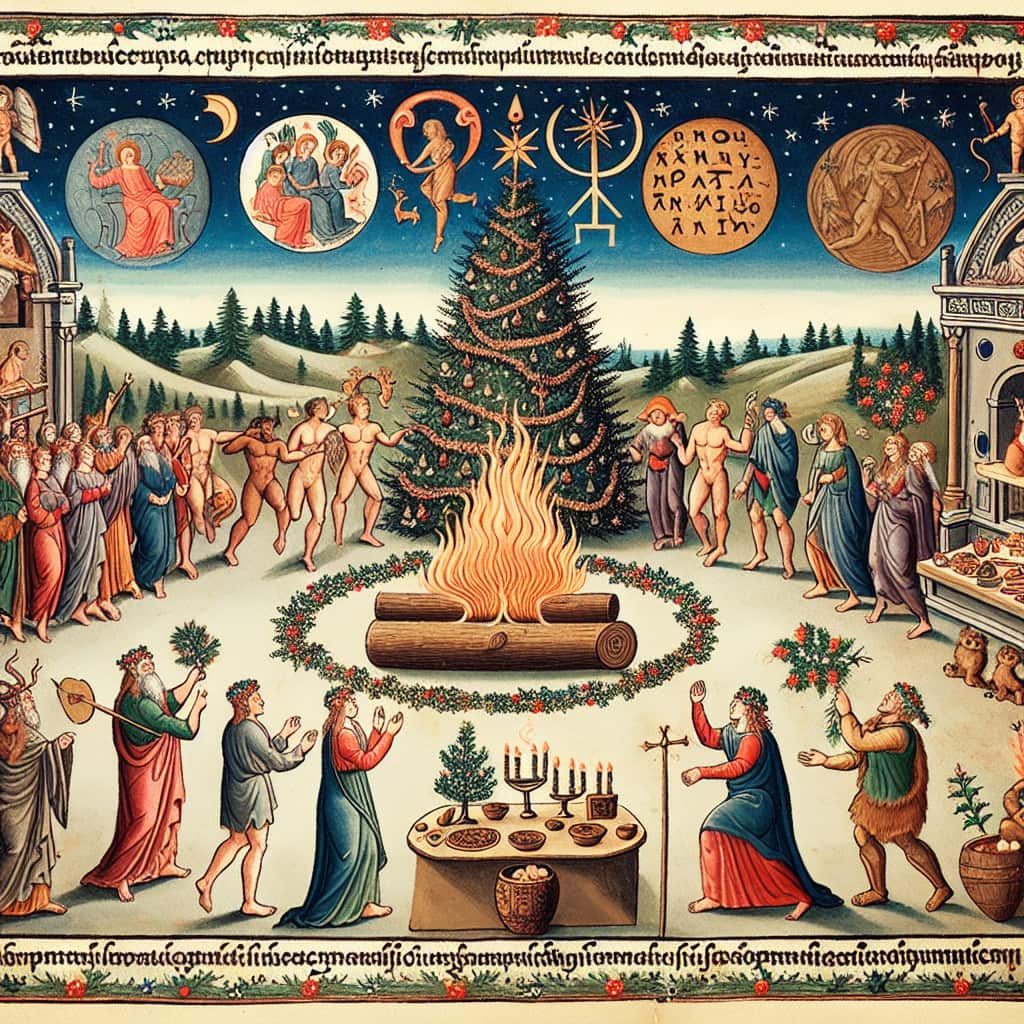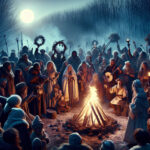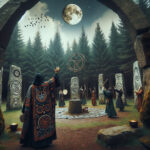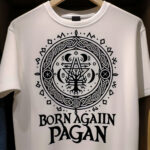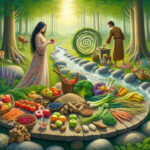The Christmas holiday has become synonymous with family gatherings, gift giving, and the celebration of the birth of Jesus Christ. But was Christmas originally a pagan holiday? In this article, we will explore the history of the Christmas celebration, from its pagan roots to its modern day incarnation. We will look at the various cultural and religious influences that have shaped the holiday over the years and examine how the traditions of Christmas have evolved. Finally, we will discuss the importance of Christmas in our lives today.

Christmas is a beloved holiday celebrated by people of different faiths around the world. But its roots are much deeper in time and culture than many realize. Christmas was originally a pre-Christian pagan holiday that was celebrated at the end of the year in many northern European countries.
What Is Paganism?
Paganism is a set of religious beliefs and practices that developed independently of Christianity, Judaism, and Islam. It is typically characterized by the worship of multiple gods and goddesses, the use of ritual and magical practices, and a focus on nature and the cycles of the year.
When Was Christmas Originally Celebrated?
Christmas was originally a pagan holiday, celebrated at the end of the year in many northern European countries. In Scandinavia, the festival was called Yule, while in Germany it was called Yul. The celebration was believed to honor the Norse god Odin, who was thought to bring good luck, and the renewal of the sun god.
How Did Christmas Become a Christian Holiday?
Christmas was adopted by the early Christian church in the fourth century CE. According to the Christian tradition, it was the day on which Jesus Christ was born. Over the centuries, the pagan elements of the holiday were gradually replaced by Christian ones, such as the nativity scene and the Christmas tree.
What Are Some of the Pagan Traditions Associated With Christmas?
Many of the traditions associated with Christmas today have their roots in paganism. These include the Yule log, mistletoe, and holly, which were all symbols of fertility and good luck in pagan cultures. The Yule log was originally a log burned in the hearth on the longest night of the year to bring good luck and prosperity into the home. Mistletoe and holly were also seen as symbols of fertility and were used to decorate homes during the holiday season.
What Are Some of the Christmas Customs That Have Been Influenced by Paganism?
Many of the customs associated with Christmas today have their origins in paganism. This includes the use of evergreens, which were seen as symbols of life in pagan cultures. The Yule log and the burning of candles were also pagan customs, as they were believed to bring good luck and ward off evil spirits. The giving of gifts, which was originally part of the Roman celebration of Saturnalia, is now a major part of the Christmas tradition.
What Are Some Other Pagan Traditions That Are Still Practiced Today?
Many pagan traditions have been incorporated into the Christmas celebration, but some have survived in their original form. In the British Isles, for example, some people still practice the ancient custom of wassailing, where a group of people go from door to door singing traditional songs to bring good luck for the coming year. The tradition of decorating a tree with ornaments also has its roots in paganism, as it was believed that doing so would bring good luck and prosperity.
Conclusion
Christmas is a beloved holiday celebrated by people of different faiths around the world. But its roots are much deeper in time and culture than many realize. Christmas was originally a pre-Christian pagan holiday that was celebrated at the end of the year in many northern European countries. Many of the customs and traditions associated with Christmas today have their roots in paganism, such as the use of evergreens, the Yule log, and the giving of gifts. While some pagan traditions have been replaced or adapted by Christian ones, others have survived in their original form.
In conclusion, Christmas has evolved from a pagan holiday to a widely celebrated holiday across the world. Although the celebration of Christmas has taken on a religious aspect for many, its roots in paganism are still evident in the traditions and customs we observe today. The Yuletide season is a time of joy, celebration, and reflection, and its pagan origins are an important reminder of our shared cultural heritage. No matter what the origin, Christmas is a time to come together and celebrate the spirit of the season.

